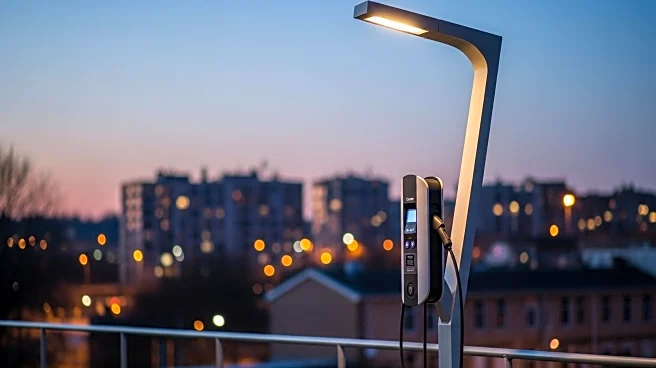What is the story about?
What's Happening?
Researchers at Penn State have developed a scalable framework to use streetlights as electric vehicle (EV) charging stations, aiming to address the limited access to charging infrastructure in urban areas. The team installed 23 streetlight charging units in Kansas City, Missouri, and found them to be more cost-effective, environmentally friendly, and accessible compared to traditional EV charging stations. The project, funded by the U.S. Department of Energy, involved collaboration with local utilities and the National Renewable Energy Lab. The framework considers demand, feasibility, and benefits, and aims to be adopted by various communities to increase EV usage.
Why It's Important?
The initiative is significant as it addresses a major barrier to EV adoption: the lack of convenient charging options for urban residents, particularly those in multi-unit dwellings. By utilizing existing streetlight infrastructure, the project offers a cost-effective and scalable solution that could accelerate the transition to electric vehicles, reduce emissions, and promote sustainable urban development. This approach could democratize access to EV charging, making it more equitable across different neighborhoods and potentially increasing the overall adoption of electric vehicles in the U.S.
What's Next?
The researchers plan to enhance their models by incorporating socio-economic data and weather information to better identify communities with limited EV access and optimize infrastructure deployment. This could lead to more targeted and effective expansion of EV charging networks, ensuring that the benefits of electrification are distributed fairly across diverse communities.
















